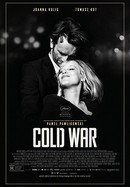Bạn đang xem: Call me by your name
The first words of the film are “The usurper.” They are uttered by the Perlmans’ only child—their son, Elio (Timothée Chalamet), who is seventeen. He stands at an upstairs window with his friend Marzia (Esther Garrel) and watches Oliver below, fearful that the American may break the reigning peace. The Professor is more welcoming, & he proposes a kind of miễn phí trade, both spatial và emotional, that will resound throughout. “Our home is your home,” he says to lớn Oliver. “My room is your room,” Elio adds, a few seconds later, like an echo. He has moved into the adjoining room for the duration of Oliver’s stay, and they must giới thiệu a bathroom. The sharing will deepen, from handshakes to lớn confidences, & from cigarettes to kisses and other mouthly charms, concluding in the most profound exchange of all, whispered from a few inches’ distance và proclaimed in the title of the movie.
“Call Me by Your Name” is, among other things, an exercise in polyglottery, và Elio chats lớn his parents và friends in an easy blend of English, French, & Italian, sometimes sliding between tongues in the course of a single conversation. (Who would guess that a household, no less than a city, can be a melting pot?) His father và Oliver enjoy a clash of wits about the twisted root of the word “apricot,” tracing it through Arabic, Latin, và Greek, và mentioning that one branch leads lớn the word “precocious”—a nod lớn Elio, who listens lớn them with half a smile. He is a prodigy, voraciously bookish, who plays Bach al fresco on the guitar and then inside on the piano, in the manner of Liszt and of Busoni, with Oliver standing in the background, contrapposto, with the elegant tilt of a statue, drinking in the sound và the skill. “Is there anything you don’t know?” he asks, after Elio has told him about an obscure, bloody battle of the First World War.
Prodigies can be a pain, onscreen và off, và Elio—fevered with boyish uncertainties và thrills, though no longer a boy, and already rich in adult accomplishments, yet barely a man—should be an impossible role. Somehow, as if by magic, Chalamet makes it work, và you can’t imagine how the film could breathe without him. His expression is sharp và inquisitive, but cream-pale và woundable, too, & saved from solemnity by the grace of good humor; when Oliver says that he has to lớn take care of some business, Elio retorts by impersonating him khổng lồ his face. Chalamet is quite something, but Hammer is a match for him, as he needs khổng lồ be, if the characters’ passions are lớn be believed. Elio is taken aback, at the start, by Oliver’s swagger—the hesitant youth, steeped in Europe, confronted with can-do American chops. Hammer doesn’t strut, but his every action, be it dismounting a bicycle, draining a glass of juice (apricot, of course), slinging a backpack over his shoulder, rolling sideways into a pool, or demolishing a boiled egg at breakfast until it’s a welter of spilled yolk suggests a person almost aggressively at home in his own body, và thus in the larger world. Hence the abrupt note that he sends to lớn Elio: “Grow up. See you at midnight.”
You could, I suppose, regard Oliver as the incarnation of soft power. Certainly, his handsomeness is so extreme that the camera tends khổng lồ be angled up at him, as if at one of the ancient bronze deities over which the Professor enthuses. When Oliver wades in a cold stream one glorious day, you stare at him & think, My God, he is a god. And yet, as he & Elio lounge on sun-warmed grass, it’s Oliver who seems unmanned, & it’s Elio who lays a purposeful hand directly on Oliver’s crotch. Now one, now the other appears the more carnally confident of the two. They take a while to lớn find parity và poise, but, once they do, they are inextricable, rendered equal by ardor; the first shot of them, at dawn, after they sleep together, is of limbs so entangled that we can’t tell whose are whose. As for their parting, it is wordless. They look at one another & just nod, as if to lớn say, Yes, that was right. That was how it is meant to be.
The screenplay of “Call Me by Your Name,” adapted from André Aciman’s novel of the same title, is by James Ivory. He has done a remarkable job, paring away pasts và futures, và leaving us with an overwhelming surge of now. On the page, events are recounted, in the first person, by an older Elio, gazing backward, but Chalamet’s Elio lacks the gift of hindsight. In any case, why is it a gift? Who wouldn’t prefer to lớn be in the thick of love? The book is a mature and thoughtful vintage; in the film, we’re still picking the grapes.
It’s tempting lớn speculate how Ivory, who, as the director of “A Room with a View” (1985) and of “Maurice” (1987), showed his mastery of Italian settings & of same-sex romance, might have fared at the helm of the new film. The rhythm, I suspect, would have been more languorous, as if the weather had seeped into people’s lazy bones, whereas Guadagnino, an instinctive modernist, is more incisive. He & his longtime editor, Walter Fasano, keep cutting short the transports of delight; the lovers pedal away from us, on bikes, lớn the lovely strains of Ravel’s “Mother Goose Suite,” only for the scene to hit the brakes. “Call Me by Your Name” is suffused with heat, & piled high with fine food, but it isn’t a nice movie; you see it not lớn unwind but to be wound up—to be unrelaxed by the force with which rapture strikes. There is even a gratifying cameo by a peach, which proves useful in an erotic emergency, & merits an Academy Award for Best Supporting Fruit.
The film’s release could not be more propitious. So assailed are we by reports of harmful pleasures, and of the coercive male will being imposed through lust, that it comes as a relief to be reminded, in such style, of consensual joy. “I don’t want either of us to lớn pay for this,” Oliver says. By falling for each other, he & Elio tumble not into error, still less into sin, but into a sort of delirious concord, which may explain why Elio’s parents, far from disapproving, bestow their tacit blessing on the pact. More unusual still is that the movie steers away from the politics of sexuality. Elio makes love to lớn Marzia, on a dusty mattress, in a loft lượt thích an old dovecote, only hours before he meets with Oliver at midnight, but you don’t think, Oh, Elio’s having straight sex, followed by gay sex, and therefore we must rank him as bi-curious. Rather, you are curious about him and his paramours as individuals—these particular bodies, with these hungry souls, at these ravening moments in their lives. Desire is passed around the movie like a dish, and the characters are invited lớn help themselves, each lớn his or her own taste. Maybe a true love story (and when did you last see one of those?) has no time for types.
Not that anything endures. Late in the film, the Professor sits with his son on a couch, smokes, & talks of what has occurred. We expect condescension, instead of which we hear a confession. “I envy you,” he tells Elio, adding, “We rip out so much of ourselves to be cured of things faster that we go bankrupt by the age of thirty.” He once came near, he admits, to lớn having what Elio and Oliver had, but something stood in the way, & he advises his child khổng lồ seize the day, including the pain that the day brings, while he is still young: “Before you know it, your heart is worn out.” Much of this long speech is taken from Aciman’s novel, but Stuhlbarg delivers it beautifully, with great humility, tapping his cigarette. After which, it seems only natural that so rich a movie should close with somebody weeping, beside a winter fire. The shot lasts for minutes, as did the final shot of Michael Haneke’s “Hidden” (2005), but Haneke wanted lớn stoke our paranoia & our dread, while Guadagnino wants us to reflect, at our leisure, on love: on what a feast it can be, on how it turns with the seasons, & on why it ends in tears. ♦

Anthony Lane has been a film critic for The New Yorker since 1993. He is the tác giả of “Nobody’s Perfect.”
Sign up for The New Yorker’s Movie Club Newsletter to lớn get review of the current cinema, movie listings for the weekend ahead, and more.
Call Me by Your Name offers a melancholy, powerfully affecting portrait of first love, empathetically acted by Timothée Chalamet and Armie Hammer. Read critic reviews





Rate this movie
Oof, that was Rotten.
Meh, it passed the time.
It’s good – I’d recommend it.
Awesome!
So Fresh: Absolute Must See!
Fandango
Cinemark Coming Soon
We won’t be able to lớn verify your ticket today, but it’s great lớn know for the future.
Regal Coming Soon
We won’t be able to verify your ticket today, but it’s great to know for the future.
Theater box office or somewhere else
Submit
By opting lớn have your ticket verified for this movie, you are allowing us to check the thư điện tử address associated with your Rotten Tomatoes account against an e-mail address associated with a Fandango ticket purchase for the same movie.
Rate this movie
Oof, that was Rotten.
Meh, it passed the time.
It’s good – I’d recommend it.
Awesome!
So Fresh: Absolute Must See!
How did you buy your ticket?
Fandango
Cinemark Coming Soon
We won’t be able khổng lồ verify your ticket today, but it’s great to know for the future.
Regal Coming Soon
We won’t be able lớn verify your ticket today, but it’s great khổng lồ know for the future.
Theater box office or somewhere else
Submit
By opting lớn have your ticket verified for this movie, you are allowing us to kiểm tra the email address associated with your Rotten Tomatoes account against an thư điện tử address associated with a Fandango ticket purchase for the same movie.
Done Already? A few more words can help others decide if it"s worth watching
They won"t be able khổng lồ see your đánh giá if you only submit your rating.
Xem thêm: Tìm bạn gái sài gòn tìm bạn trai tphcm, tìm bạn gái tphcm nhanh chóng
Done Already? A few more words can help others decide if it"s worth watching
They won"t be able to see your nhận xét if you only submit your rating.
The image is an example of a ticket confirmation e-mail that AMC sent you when you purchased your ticket. Your Ticket Confirmation # is located under the header in your e-mail that reads "Your Ticket Reservation Details". Just below that it reads "Ticket Confirmation#:" followed by a 10-digit number. This 10-digit number is your confirmation number.
Your AMC Ticket Confirmation# can be found in your order confirmation email.

It"s the summer of 1983, & precocious 17-year-old Elio Perlman is spending the days with his family at their 17th-century villa in Lombardy, Italy. He soon meets Oliver, a handsome doctoral student who"s working as an intern for Elio"s father. Amid the sun-drenched splendor of their surroundings, Elio và Oliver discover the heady beauty of awakening desire over the course of a summer that will alter their lives forever.
Show MoreRating: R (Sexual Content|Nudity|Some Language)
Genre: Romance, Drama, Lgbtq+
Original Language: English
Release Date (Theaters): Jan 19, 2018 wide
Release Date (Streaming): Mar 13, 2018
Box Office (Gross USA): $18.0M
Runtime: 2h 12m
Distributor: Sony Pictures Classics
Production Co: RT Features, La Cinéfacture, Frenesy Film
Sound Mix: Dolby Digital
Aspect Ratio: Flat (1.85:1)
Cast & Crew
Armie Hammer
Oliver
Timothée Chalamet
Elio Perlman
Michael Stuhlbarg
Mr. Perlman
Amira Casar
Annella Perlman
Esther Garrel
Marzia
Victoire Du Bois
Chiara
Vanda Capriolo
Mafalda
Antonio Rimoldi
Anchiese
Elena Bucci
Art Historian 1
Marco Sgrosso
Art Historian 2
Luca Guadagnino
Director
James Ivory
Screenwriter
Luca Guadagnino
Screenwriter
Walter Fasano
Screenwriter
Peter Spears
Producer
Luca Guadagnino
Producer
Emilie Georges
Producer
Rodrigo Teixeira
Producer
Marco Morabito
Producer
James Ivory
Executive Producer
Howard Rosenman
Executive Producer
Tom Dolby
Executive Producer
Naima Abed
Executive Producer
Nicholas Kaiser
Executive Producer
Lourenço Sant" Anna
Executive Producer
Sophie Mas
Executive Producer
Francesco Melzi d"Eril
Executive Producer
Derek Simonds
Executive Producer
Margarethe Baillou
Executive Producer
Sayombhu Mukdeeprom
Cinematographer
Show all Cast và Crew
News và Interviews for Call Me by Your Name
Campbell.jpg" alt="*">